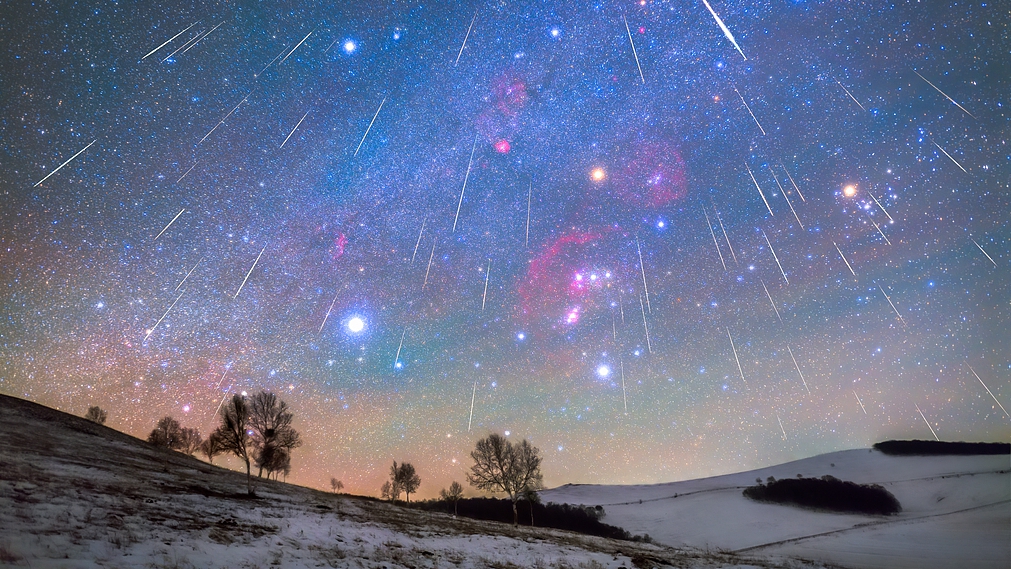The year’s most spectacular meteor shower reaches its peak tonight, offering a dazzling display of up to 150 shooting stars per hour. This is the perfect moment to witness the celestial show!

If you love gazing at the stars, don’t forget to look up tonight!
This weekend marks the peak of the stunning Geminid meteor shower, a celestial event that promises to dazzle.
Often referred to as the ‘king of meteor showers’, the Geminids are the most breathtaking display of the year and absolutely worth your attention.
You can expect to see up to 150 brilliant meteors lighting up the night sky each hour, with many showcasing vibrant colors like yellow, green, red, and blue.
Although the Geminids will be visible until December 20, tonight and the early hours of Sunday morning will offer the best viewing opportunities.
Professor Don Pollacco from The University of Warwick shared with MailOnline: ‘This year, the viewing conditions aren’t perfect due to a nearly full moon, which may hide some of the fainter meteors.
‘Nevertheless, this meteor shower is always a sight to behold if the weather cooperates.’
Here’s everything you need to know about the Geminid meteor shower, including tips on when and where to catch the best views.
Discover the best ways to catch the Geminids meteor shower this evening.
Tonight, starting at 9 pm GMT, direct your gaze southward and upward.
The meteor shower will peak around 2 am on Sunday morning, but you can catch glimpses of it from early evening today.
Locate the bright star Castor in the Gemini constellation, as this is where the meteors originate.
For the best chance of spotting shooting stars, look just off to the side of this constellation.
Make sure to find a spot away from city lights, bundle up warmly, and allow your eyes ample time to adapt to the dark.
When is the upcoming meteor shower scheduled?
Even if you miss the Geminids tonight and in the days ahead, don’t worry—there are still plenty of opportunities to catch some meteors.
The Ursid meteor shower will grace the skies from December 17 to December 26, peaking just in time for Christmas on December 23.
While it offers about 10 meteors per hour, which may not rival the Geminids, the long nights around the winter solstice make it a perfect time for stargazing.
Following that, from December 26 to January 12, 2025, the spectacular Quadrantids meteor shower will light up the night sky for eager observers.
